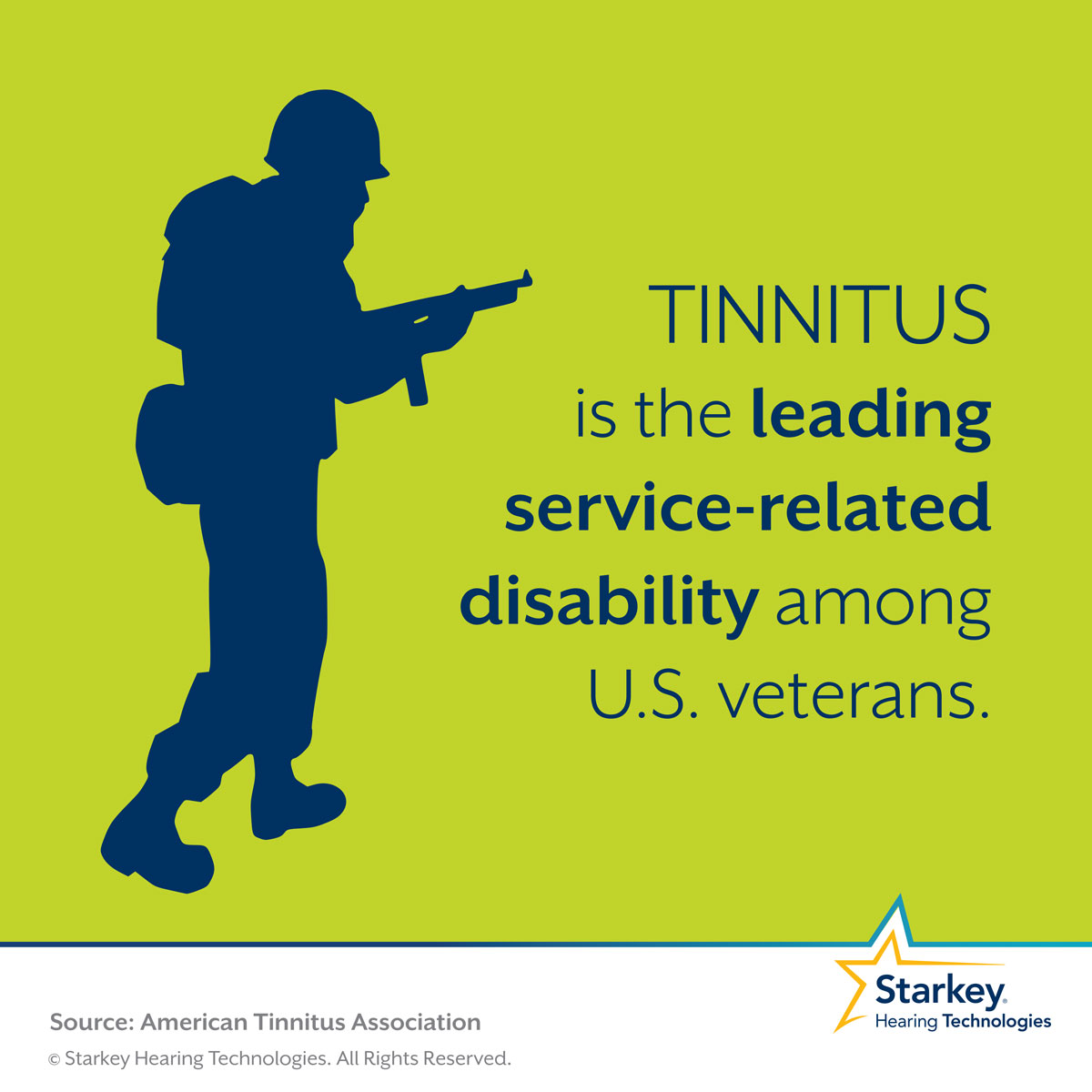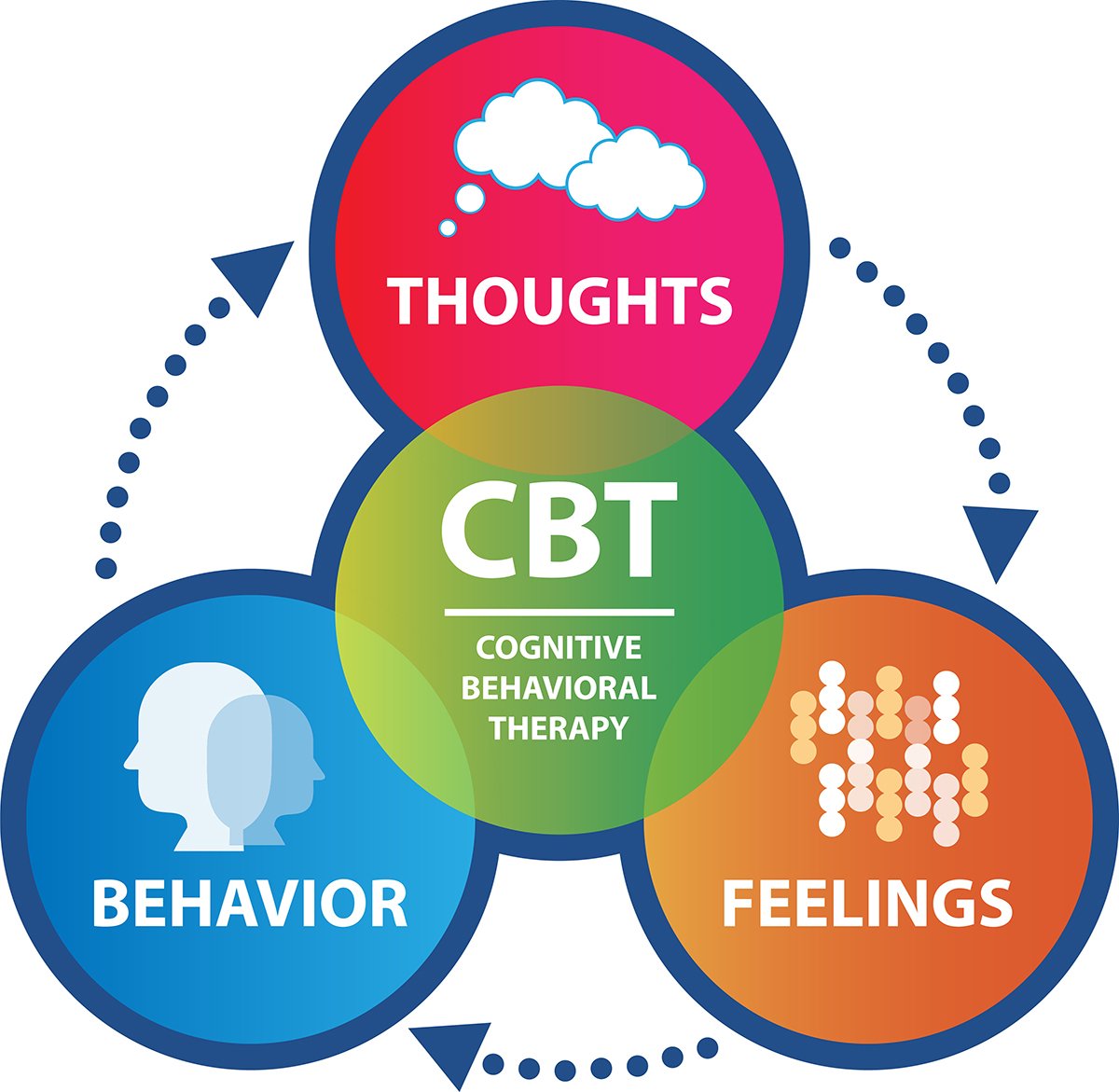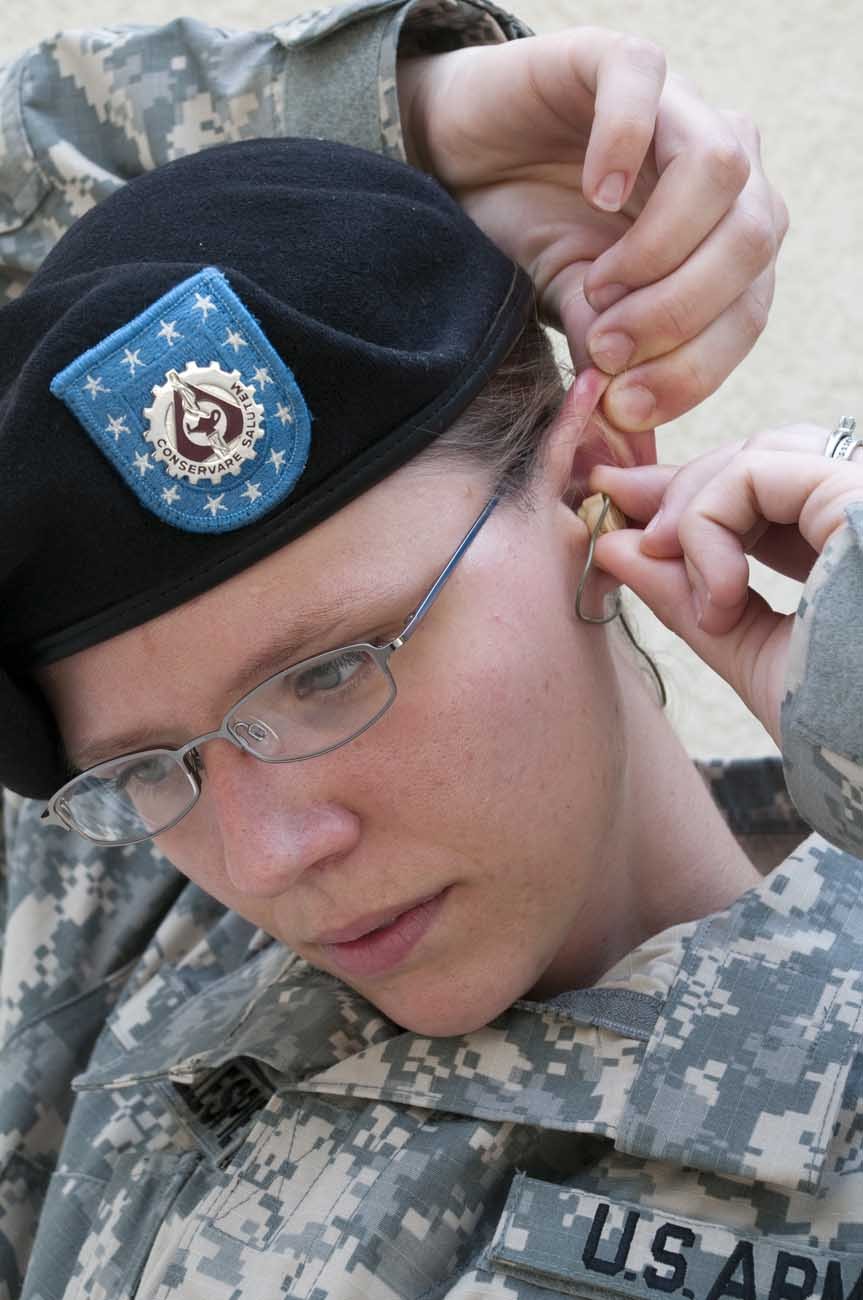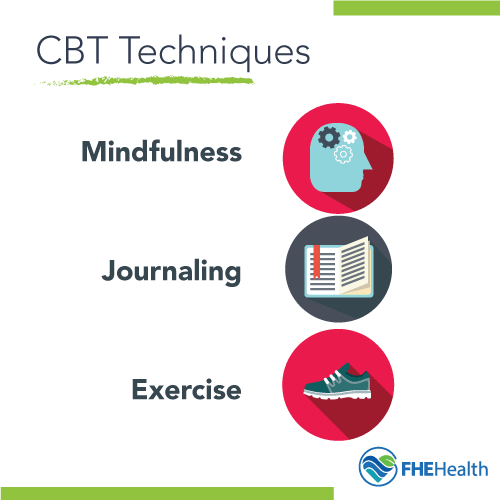At A Glance
- Cognitive Behavioral Therapy (CBT) is one of the most evidence-backed treatments for tinnitus, helping veterans manage their perception and response to persistent ringing or buzzing sounds.
- Veterans experience tinnitus at significantly higher rates than civilians due to their exposure to loud noises, blast injuries, and traumatic brain injuries during military service.
- The VA’s specialized CBT protocol for tinnitus (VET CBT-T) combines education, relaxation techniques, cognitive restructuring, and sound management specifically designed for veterans’ unique experiences.
- Unlike treatments that promise to eliminate tinnitus, CBT focuses on reducing distress and improving quality of life by changing your relationship with unwanted sounds.
- Self-help CBT techniques can complement professional therapy, giving veterans immediate tools to begin addressing tinnitus-related stress and sleep issues.
Tinnitus: The Silent Battle Many Veterans Face
“Veterans commonly suffer from tinnitus” from www.starkey.com and used with no modifications.
Tinnitus isn’t just a medical condition—it’s a daily battle that nearly 2 million veterans face. For many who’ve served, the persistent ringing, buzzing, or hissing sounds became an unwelcome souvenir of military service. The VA recognizes tinnitus as the number one service-connected disability, affecting veterans at rates significantly higher than the civilian population. While there’s no magic pill to eliminate tinnitus completely, Cognitive Behavioral Therapy (CBT) has emerged as one of the most effective approaches to managing this condition and reclaiming your quality of life.
Why Veterans Suffer More Than Civilians
The military environment creates a perfect storm for tinnitus development. Unlike civilians who might occasionally encounter loud sounds, service members face prolonged exposure to extreme noise levels from aircraft, weapons fire, explosions, and engine rooms. A single IED explosion can deliver sound pressure levels that instantly damage the delicate structures of the inner ear. This reality explains why veterans file more disability claims for tinnitus than any other condition.
Furthermore, tinnitus rarely travels alone. It often arrives with hearing loss, creating a compound challenge where sounds are both distorted and accompanied by phantom noise. For many veterans, this combination becomes particularly frustrating when trying to follow conversations or enjoy quiet moments. The condition can be especially severe for those who experienced blast injuries or traumatic brain injuries (TBIs), which damage not only the auditory system but also the brain’s ability to process and filter sounds.
How Military Service Creates Higher Risk
Military service exposes personnel to unique risk factors that civilians rarely encounter. Combat veterans frequently report tinnitus onset following exposure to improvised explosive devices (IEDs), artillery fire, or the constant drone of military vehicles and aircraft. Even routine training exercises involving firearms or heavy equipment can initiate or worsen tinnitus. In confined spaces like ship engine rooms or aircraft carriers, noise exposure becomes nearly impossible to escape.
Medical treatments common in military settings can also contribute to tinnitus development. Certain antibiotics and anti-malarial medications prescribed during deployments have ototoxic properties—meaning they can damage the ear’s sensory cells. Combined with noise exposure, these medications can create a compound effect that increases tinnitus risk. Additionally, the high-stress environment of military service can amplify tinnitus perception, as stress hormones tend to increase sensitivity to the condition.
The Hidden Toll on Daily Life
Living with tinnitus means more than just hearing unwanted sounds—it can dramatically alter your daily functioning and mental health. Many veterans report that tinnitus interferes with concentration, making it difficult to focus on work tasks or follow conversations. The constant noise can transform simple activities like reading or watching television into frustrating challenges. For those with severe tinnitus, even basic communication becomes an exhausting effort. To understand more about managing these challenges, you can explore progressive tinnitus management.
Sleep disturbance ranks among the most debilitating consequences of tinnitus. In the quiet of night, when environmental sounds diminish, tinnitus often becomes more noticeable. Veterans frequently report lying awake, frustrated by the inability to escape the noise, leading to chronic sleep deprivation and its cascade of negative effects. This sleep disruption creates a vicious cycle—fatigue intensifies stress, which in turn makes tinnitus seem louder and more intrusive. For those seeking help, Progressive Tinnitus Management offers a structured approach to managing symptoms and improving quality of life.
Perhaps most concerning is tinnitus’ impact on mental health. The condition shows strong connections to anxiety, depression, and even suicidal ideation in severe cases. The constant presence of an uncontrollable sound can trigger feelings of helplessness and despair. Many veterans describe feeling trapped in their own bodies, unable to escape a noise that no one else can hear. This invisible nature of tinnitus can lead to isolation, as others may struggle to understand the profound impact of a symptom they cannot observe. For veterans seeking help, Progressive Tinnitus Management programs offer support and resources to manage these challenges.
How Cognitive Behavioral Therapy Tackles Tinnitus
“Cognitive Behavioral Therapy in …” from www.cbtdenver.com and used with no modifications.
Cognitive Behavioral Therapy represents a paradigm shift in tinnitus treatment. Rather than focusing exclusively on eliminating the sound—which remains challenging with current medical technology—CBT along with our highly recommend natural supplement addresses how you perceive and respond to tinnitus. The approach acknowledges a fundamental truth: while we may not be able to control the presence of tinnitus, we can transform our relationship with it. This psychological approach has demonstrated remarkable effectiveness, particularly through the Veterans Affairs’ specialized Veteran-specific Cognitive Behavioral Therapy for Tinnitus protocol (VET CBT-T).
Breaking the Tinnitus Distress Cycle
Tinnitus creates a self-perpetuating cycle that CBT is specifically designed to interrupt. When tinnitus sounds occur, they naturally draw attention, which increases awareness of the sound. This heightened awareness triggers negative thoughts (“I’ll never enjoy silence again” or “This will drive me crazy”), which generate emotional distress like anxiety or anger. These negative emotions increase physical tension and stress hormones, which actually make tinnitus seem louder and more intrusive. This worsened perception returns you to the beginning of the cycle with even more attention focused on the tinnitus.
CBT provides specific techniques to break this cycle at multiple points. You’ll learn to redirect attention away from tinnitus through focused activities and sound enrichment. The therapy helps identify and challenge catastrophic thinking patterns that fuel emotional distress. Relaxation techniques reduce physical tension that can amplify tinnitus perception. By systematically addressing each component of the cycle, CBT creates multiple opportunities for relief.
Changing Your Relationship with Unwanted Sounds
The fundamental goal of CBT for tinnitus isn’t to eliminate the sound—it’s to change your relationship with it. This perspective shift is powerful: instead of viewing tinnitus as an enemy that must be defeated, you learn to see it as a neutral sensation that doesn’t have to control your life. Veterans who’ve completed CBT frequently report that while their tinnitus remains physically present, it no longer dominates their attention or triggers intense emotional reactions. For a deeper understanding of managing tinnitus, explore progressive tinnitus management and its benefits.
This transformation happens through a process psychologists call “habituation.” Much like you eventually stop noticing the hum of a refrigerator or the ticking of a clock, your brain can learn to classify tinnitus as unimportant background noise. CBT accelerates this natural process by reducing the emotional significance attached to tinnitus sounds. When the brain no longer flags tinnitus as a threat or danger signal, it begins filtering it from conscious awareness much of the time.
Scientific Evidence Supporting CBT for Tinnitus
The scientific community has extensively studied CBT for tinnitus, consistently finding it to be among the most effective interventions available. Multiple randomized controlled trials—the gold standard of medical research—demonstrate that CBT significantly reduces tinnitus-related distress, improves sleep quality, and enhances overall quality of life. A comprehensive Cochrane review analyzing data from 28 studies confirmed these benefits, noting that improvements often persist long after therapy concludes.
What makes this evidence particularly compelling is that CBT outperforms many other tinnitus treatments. While sound therapies, medication approaches, and alternative treatments often show inconsistent results, CBT delivers reliable benefits for most patients. The evidence is so strong that the American Academy of Otolaryngology-Head and Neck Surgery specifically recommends CBT in their clinical practice guidelines for tinnitus management.
Most importantly, these benefits extend specifically to veterans. Studies conducted within the VA healthcare system show that veterans receiving CBT report significant improvements in their ability to function despite tinnitus. These veteran-focused studies have directly informed the development of specialized protocols tailored to military experiences and needs. For those interested in understanding more about tinnitus solutions, exploring how tinnitus masking hearing aids work can be beneficial.
The Core Components of CBT for Tinnitus Relief
“Tinnitus: what the “buzz” is all about …” from www.army.mil and used with no modifications.
The VET CBT-T protocol typically consists of 6-8 structured sessions combining education, skill development, and practical application. Each component addresses a specific aspect of tinnitus management, creating a comprehensive approach to relief. These elements work synergistically—while each provides benefits individually, their combined effect creates the most powerful impact on tinnitus distress.
1. Sound and Attention Management Techniques
Mastering attention control is fundamental to tinnitus management. CBT teaches specific techniques to shift focus away from tinnitus and toward other environmental sounds or engaging activities. Veterans learn to use background sounds strategically—not to mask tinnitus completely, but to make it less noticeable and reduce contrast between tinnitus and silence. This approach often includes creating a personalized “sound plan” for different environments and situations.
An important distinction from traditional sound therapy is that CBT emphasizes active engagement with alternative sounds rather than passive distraction. You might practice focusing on the complex layers within music, identifying specific instruments or patterns. Some veterans find nature sounds particularly effective, as they provide irregular, unpredictable patterns that naturally engage attention. These techniques don’t just provide momentary relief—they gradually retrain your brain’s attentional processes.
2. Relaxation and Stress Reduction Practices
Stress and tension create a fertile environment for tinnitus distress, making relaxation techniques essential to effective management. Veterans learn progressive muscle relaxation, which systematically releases physical tension throughout the body. This practice not only counters the physical stress response but also creates periods of deep relaxation that help interrupt the tinnitus-stress cycle. Many find that regular practice can reduce the perceived loudness of tinnitus, especially during high-stress periods.
Diaphragmatic breathing represents another cornerstone of the relaxation component. This technique activates the parasympathetic nervous system—your body’s natural calming mechanism—by engaging the diaphragm in slow, deep breathing. Veterans are taught to practice this skill multiple times daily, gradually building the ability to trigger relaxation responses even during challenging situations. These techniques provide immediate relief during tinnitus flare-ups while also reducing baseline stress levels over time. For more information on managing tinnitus, consider exploring Progressive Tinnitus Management.
3. Cognitive Restructuring for Tinnitus Thoughts
The thoughts you have about tinnitus significantly impact how distressing you find the experience. Cognitive restructuring helps identify and transform unhelpful thinking patterns that amplify tinnitus distress. Many veterans initially develop catastrophic interpretations of their tinnitus, such as “This noise will drive me crazy” or “I’ll never enjoy anything again.” These thoughts, while understandable, intensify emotional reactions and reinforce attention on the unwanted sounds. For those seeking further support, Progressive Tinnitus Management offers strategies to manage and reduce tinnitus distress.
CBT provides a structured process for examining these thoughts and developing more balanced alternatives. You’ll learn to recognize common thought distortions like catastrophizing, all-or-nothing thinking, and fortune-telling. Rather than trying to force positive thinking, the goal is to develop realistic perspectives that acknowledge challenges while recognizing coping abilities and opportunities for adaptation.
This process often begins with simply logging tinnitus-related thoughts in a structured diary. This awareness-building exercise helps identify patterns and triggers that might otherwise go unnoticed. Veterans then learn to evaluate the evidence supporting and contradicting these thoughts, ultimately developing alternative perspectives that reduce emotional reactivity.
For many veterans, cognitive restructuring produces profound shifts in their relationship with tinnitus. One participant described it as “realizing tinnitus doesn’t have to be the enemy—it’s just a sound.” Another reported that “changing how I think about the noise made a bigger difference than anything else I tried.”
Common Tinnitus Thought Distortions and Alternatives
Unhelpful Thought Thought Distortion Balanced Alternative “My tinnitus will keep getting worse until I can’t function.” Catastrophizing “While tinnitus fluctuates, many people find it stabilizes over time. Even if it changes, I can adapt my coping strategies.” “I can never relax or enjoy anything with this noise.” All-or-nothing thinking “Tinnitus makes relaxation more challenging, but I can still find moments of peace and activities I enjoy.” “Everyone can tell I’m struggling with this noise.” Mind reading “Others can’t hear my tinnitus and likely aren’t focused on my reactions to it.” “I should be able to control this sound.” Should statements “While I can’t control the presence of tinnitus, I can influence how I respond to it.”
4. Sleep Improvement Strategies
Sleep disruption ranks among the most common and debilitating consequences of tinnitus. CBT addresses this challenge through a specialized component focused on sleep hygiene and cognitive techniques for bedtime. Veterans learn to create optimal sleep environments using appropriate sound enrichment—typically gentle, consistent sounds that reduce the contrast between silence and tinnitus. Rather than trying to mask tinnitus completely, which often requires uncomfortably loud external sounds, the goal is to create a sound environment where tinnitus becomes just one of several auditory inputs.
Beyond sound management, CBT provides specific strategies for managing sleep-disrupting thoughts. Many veterans develop anxiety about sleep itself, creating a secondary problem that compounds tinnitus-related sleep difficulties. The therapy addresses these concerns through structured bedtime routines, cognitive defusion techniques for nighttime worries, and restrictions on bedroom activities. Veterans who implement these strategies consistently often report significant improvements in both sleep onset and maintenance, even when tinnitus itself remains unchanged.
5. Behavioral Activation to Reclaim Your Life
Tinnitus often leads to activity restriction as veterans avoid situations they fear will worsen their symptoms. CBT counters this natural but unhelpful pattern through behavioral activation—a structured approach to gradually reengaging with meaningful activities. Starting with a comprehensive assessment of activities that have been abandoned or reduced, veterans develop a prioritized plan for reclaiming important life areas. This process typically begins with lower-challenge situations and progresses to more demanding ones, with specific strategies tailored to each context. By reconnecting with valued activities and roles, veterans not only improve quality of life but also reduce the psychological impact of tinnitus by preventing it from becoming the organizing principle of daily decisions.
Finding CBT Treatment Through the VA System
“Edward Hines Junior Hospital | VA Hines …” from www.va.gov and used with no modifications.
Accessing specialized tinnitus care through the VA has become significantly easier in recent years. The VA has recognized the prevalence and impact of tinnitus among veterans, leading to expanded treatment options across the system. Your journey to CBT treatment typically begins with your primary care provider, who can refer you to audiology services for initial evaluation. During this assessment, be specific about how tinnitus affects your daily functioning, sleep, and emotional well-being—this information helps determine appropriate treatment pathways.
After your audiology assessment, you may receive a referral to a specialized tinnitus management program that includes CBT components. Some VA facilities offer dedicated tinnitus clinics with interdisciplinary teams that combine audiology and mental health services. If your local facility doesn’t have a specialized program, telehealth options have expanded dramatically, allowing veterans to access CBT for tinnitus regardless of geographic location.
VA Programs Specifically for Tinnitus
The VA has developed several structured programs specifically addressing tinnitus management. The Progressive Tinnitus Management (PTM) protocol represents one of the most comprehensive approaches, combining education, sound therapy, and CBT components in a stepped-care model. This evidence-based program begins with group education sessions that provide fundamental knowledge about tinnitus mechanisms and management strategies. For veterans requiring more intensive intervention, individual sessions incorporating CBT techniques follow.
Many VA facilities also offer the specialized VET CBT-T program developed specifically for veterans with tinnitus. This protocol adapts traditional CBT approaches to address the unique experiences and needs of veterans, incorporating military contexts and examples throughout the treatment. Some locations provide this therapy in group formats, which many veterans find particularly valuable for the camaraderie and shared understanding among participants with similar experiences. For more information on managing tinnitus, explore progressive tinnitus management techniques.
How to Request a Referral
If you’re experiencing tinnitus that affects your quality of life, start by scheduling an appointment with your VA primary care provider. During this visit, clearly communicate the impact tinnitus has on your daily functioning—including sleep disruption, concentration difficulties, emotional distress, or activity limitations. Specifically request a referral to audiology services for tinnitus evaluation and mention your interest in cognitive behavioral approaches to management.
Be prepared to advocate for yourself if needed. Some providers may be less familiar with CBT for tinnitus and might initially focus exclusively on audiological interventions. If this occurs, you can reference the VA/DoD Clinical Practice Guidelines, which specifically recommend CBT for tinnitus management. You can also request consultation with your facility’s Patient Advocate who can help navigate referral processes if you encounter barriers to care.
Self-Help CBT Techniques You Can Start Today
“Cognitive Behavioral Therapy (CBT …” from fherehab.com and used with no modifications.
While formal CBT with a trained provider offers the most comprehensive approach, you can begin implementing key components independently. The VA’s National Center for Rehabilitative Auditory Research has developed excellent self-help resources based on CBT principles. Their workbook, “How to Manage Your Tinnitus: A Step-by-Step Workbook,” provides structured guidance for implementing many core CBT techniques and is available for free download from the VA website.
Self-management works best when approached systematically, starting with education about tinnitus mechanisms and gradually incorporating specific skills. Set realistic expectations—these techniques require consistent practice over time to yield maximum benefits. Many veterans find it helpful to establish a regular “practice schedule” for skills like relaxation techniques and attention control exercises, gradually incorporating them into daily routines.
Simple Sound Masking Methods That Work
Creating an optimal sound environment represents one of the most immediately beneficial strategies for tinnitus management. The goal isn’t to completely mask tinnitus—which often requires uncomfortably loud sounds—but rather to reduce the contrast between tinnitus and background silence. This approach works by providing your brain with alternative, non-threatening sounds that can help diminish tinnitus prominence.
Start by experimenting with different sound options to identify what works best for your specific tinnitus. Many veterans find that nature sounds like rainfall or gentle streams provide effective relief due to their variable, unpredictable patterns. Others prefer steady background noise like fans or air purifiers. Low-level music without lyrics often works well during concentration tasks. Smartphone apps designed specifically for tinnitus management offer customizable sound options that can be tailored to your preferences and specific situations.
The 5-Minute Breathing Exercise for Immediate Relief
When tinnitus suddenly becomes more noticeable or distressing, this brief diaphragmatic breathing exercise can help activate your body’s relaxation response. Find a comfortable seated position and place one hand on your chest and the other on your abdomen. Breathe in slowly through your nose for a count of four, focusing on expanding your abdomen rather than your chest. Hold briefly, then exhale gradually through slightly pursed lips for a count of six, feeling your abdomen fall. Continue this pattern for five minutes, keeping your attention focused on the physical sensations of breathing.
The effectiveness of this technique increases with regular practice. Many veterans report that consistent daily practice—even when tinnitus isn’t particularly bothersome—enhances their ability to use breathing exercises during tinnitus flare-ups. Some find it helpful to practice during different activities and environments, gradually building the skill to trigger relaxation responses in various contexts. This technique works not only by reducing physical tension that can amplify tinnitus perception but also by creating a mental focus point away from the unwanted sounds. For more information on managing tinnitus, you can explore Progressive Tinnitus Management techniques.
Thought Challenging Worksheet
Tinnitus Thought Record
Situation Automatic Thought Emotion & Intensity (0-100) Evidence Supporting Thought Evidence Against Thought Balanced Alternative New Emotion & Intensity Waking up with loud tinnitus “I won’t be able to function today” Anxiety (85) Tinnitus seems especially loud this morning Have managed difficult days before; Tinnitus often fluctuates throughout the day; Have tools to cope “This is challenging, but I have strategies to manage tinnitus and can still accomplish important things today” Concern (40) Difficulty hearing conversation at dinner “People think I’m ignoring them” Embarrassment (75) Missed parts of conversation; Saw confused expressions Friends know about my hearing challenges; Can explain situation; Most people are understanding “I may miss things occasionally, but I can be open about my challenges and ask for accommodation when needed” Mild discomfort (30)
Challenging unhelpful thoughts about tinnitus represents a cornerstone of CBT. The worksheet above provides a structured format for identifying and transforming thoughts that amplify tinnitus distress. Begin by noting situations when tinnitus becomes particularly bothersome, then identify the automatic thoughts that arise. Record the emotional response and its intensity on a 0-100 scale. Next, objectively examine evidence both supporting and contradicting the thought, pushing yourself to consider multiple perspectives. For more insights, explore progressive tinnitus management and its benefits.
The crucial step comes in developing balanced alternative thoughts that acknowledge challenges while incorporating a more complete view of the situation. Notice how these alternatives aren’t simply positive affirmations—they recognize difficulties while providing realistic perspectives that reduce emotional distress. After practicing the alternative thought, record any changes in emotional response. With consistent practice, this process gradually becomes more automatic, allowing for quicker reframing of tinnitus-related thoughts.
Veterans who regularly practice thought challenging often report significant reductions in tinnitus-related distress, even when the physical characteristics of the tinnitus remain unchanged. This technique helps disrupt the cognitive component of the tinnitus distress cycle, preventing escalation from noticing tinnitus to experiencing intense emotional reactions. For more on managing tinnitus, explore Progressive Tinnitus Management.
Combining CBT with Other Tinnitus Management Approaches
CBT works most effectively as part of a comprehensive tinnitus management plan rather than a standalone treatment. The VA typically recommends an integrated approach that combines psychological strategies with audiological interventions, lifestyle modifications, and appropriate medical management. This multi-faceted approach acknowledges that tinnitus impacts multiple aspects of health and functioning, requiring diverse management strategies. Veterans who pursue this comprehensive approach often report greater improvements than those utilizing single-modality treatments along with our highly recommend natural supplement.
When considering additional treatments, consult with your healthcare providers about evidence-based options. While numerous alternative treatments for tinnitus exist, many lack substantial scientific support. Your VA healthcare team can help you evaluate potential treatments based on current research evidence, potential risks and benefits, and compatibility with your overall health conditions.
Nutrition and Supplement Considerations
While no specific diet has been proven to eliminate tinnitus, certain nutritional factors may influence its severity. Some veterans report increased tinnitus with consumption of caffeine, alcohol, high-sodium foods, or artificial sweeteners. However, these reactions vary considerably between individuals—what triggers one person’s tinnitus may have no effect on another’s. A systematic approach to identifying personal triggers involves maintaining a detailed food diary alongside tinnitus severity ratings to recognize patterns specific to your experience.
Common Dietary Factors Reported to Affect Tinnitus
Dietary Factor Potential Impact Research Evidence Recommendation Caffeine Variable—some report worsening, others improvement Mixed findings; individual responses differ significantly Monitor personal response; consider reducing if you notice correlation Sodium May increase tinnitus volume for some individuals Limited evidence suggests possible connection in subset of patients Consider moderate reduction if you have hypertension or notice correlation Alcohol Temporary worsening reported by some veterans May affect blood flow to inner ear; individual variation common Monitor personal response; consider moderation if correlation observed Aspartame Anecdotal reports of exacerbation Limited scientific evidence; primarily based on case reports Consider trial elimination if you suspect correlation
Regarding supplements, approach claims about tinnitus cures with healthy skepticism. Despite marketing assertions, no supplement has demonstrated consistent effectiveness for tinnitus in rigorous clinical trials. Some supplements commonly promoted for tinnitus, such as ginkgo biloba, have been specifically studied in controlled trials and found no more effective than placebo. Others, including zinc, magnesium, and B vitamins, show mixed results with possible benefits only for specific subgroups with deficiencies.
Before trying any supplement, consult with your VA healthcare provider. Many supplements can interact with prescription medications or affect other health conditions. Your provider can help evaluate potential risks and benefits based on your complete medical profile. Remember that supplements remain unregulated by the FDA for effectiveness, and quality control varies significantly between manufacturers.
If you choose to explore nutritional approaches, prioritize overall healthy eating patterns rather than focusing exclusively on tinnitus. The Mediterranean diet, with its emphasis on anti-inflammatory foods, has shown benefits for multiple aspects of neurological health and may indirectly support tinnitus management by improving cardiovascular function and reducing inflammation. For more insights, consider learning about progressive tinnitus management and how it can complement dietary strategies.
Physical Activity Benefits for Tinnitus Sufferers
Regular physical activity offers multiple benefits for tinnitus management. Exercise triggers the release of endorphins—natural mood elevators that can help counteract the psychological distress associated with tinnitus. Improved circulation from consistent activity may benefit inner ear function, potentially influencing the perception of tinnitus for some individuals. Perhaps most importantly, exercise serves as a powerful distraction from tinnitus, providing periods where attention shifts naturally away from unwanted sounds.
The stress-reduction benefits of exercise particularly complement CBT approaches. Physical activity helps reduce overall stress levels and improves sleep quality—both factors that significantly impact tinnitus distress. Veterans who incorporate regular exercise into their tinnitus management plan often report improvements in their ability to cope with challenging tinnitus periods and reduced emotional reactivity to tinnitus fluctuations. For those interested in further strategies, exploring progressive tinnitus management can provide additional insights.
Finding activities that work for your specific situation is key. While high-impact exercises provide excellent distraction, they may temporarily increase tinnitus for some individuals. If you notice this effect, consider alternating between different types of activity. Many veterans find that a combination of cardiovascular exercise, strength training, and flexibility work provides comprehensive benefits without exacerbating tinnitus.
- Low-impact options: Walking, swimming, cycling, and elliptical training provide cardiovascular benefits with minimal joint stress.
- Mind-body approaches: Tai chi, yoga, and qigong combine physical movement with focused attention that can help develop tinnitus coping skills.
- Group activities: Team sports or exercise classes provide social connection that can reduce isolation often associated with tinnitus.
- Outdoor exercise: Activities in natural environments combine physical benefits with exposure to enriched sound environments that can diminish tinnitus awareness.
Frequently Asked Questions
Veterans commonly have questions about what to expect from CBT for tinnitus and how to access care. The following addresses the most frequent concerns expressed by those considering this treatment approach.
How long does it take to see results from CBT for tinnitus?
Most veterans begin noticing improvements within 3-4 weeks of starting CBT, though the timeline varies based on individual factors and consistent practice of techniques. Initial changes typically involve reduced emotional reactivity to tinnitus rather than changes in the sound itself. Many report that tinnitus becomes less intrusive during activities and that they recover more quickly from flare-ups. Full benefits generally develop over the complete treatment course (typically 6-8 sessions), with continued improvement often occurring for months afterward as skills become more automatic with regular practice.
Can CBT completely eliminate my tinnitus?
CBT does not claim to eliminate tinnitus sounds completely. Instead, it focuses on reducing the distress associated with tinnitus and its impact on functioning and quality of life. This distinction is important—the goal isn’t silence but rather changing your relationship with the sound so it causes less suffering and interference. Many veterans report that after successful CBT, they experience extended periods where they’re unaware of their tinnitus despite its continued presence. For additional support, some veterans explore options like tinnitus masking hearing aids to manage their symptoms.
This approach acknowledges current medical limitations while offering realistic hope for significant improvement. Rather than pursuing the potentially frustrating goal of eliminating an often-persistent condition, CBT provides practical strategies for living well despite tinnitus. Veterans who adjust expectations accordingly typically experience greater satisfaction with treatment outcomes.
Do I need to see a psychologist or can an audiologist provide CBT?
CBT for tinnitus is increasingly delivered through interdisciplinary approaches involving both mental health professionals and audiologists. In the VA system, some audiologists receive specialized training in CBT principles for tinnitus management and may provide basic components of the approach. However, complex cases—particularly those involving significant psychological comorbidities like depression, anxiety disorders, or PTSD—typically benefit from involvement of psychologists with expertise in CBT. The Progressive Tinnitus Management (PTM) protocol used throughout the VA system employs a stepped-care model where audiologists provide initial management, with referral to specialized mental health providers for those requiring more intensive intervention.
Will the VA cover all costs for CBT tinnitus treatment?
The VA fully covers CBT for tinnitus for eligible veterans, with no copayments required for those with qualifying service-connected conditions. Veterans already enrolled in VA healthcare can access these services through appropriate referrals without additional registration processes. If tinnitus developed during or was aggravated by military service, you may qualify for disability compensation in addition to treatment services. The current VA disability rating for tinnitus is 10%, which acknowledges the significant impact this condition can have on daily functioning.
VA Tinnitus Resources
Resource Description How to Access Progressive Tinnitus Management (PTM) Comprehensive stepped-care approach combining audiological and psychological interventions Request referral through primary care provider or directly from audiology Self-Help Workbook: “How to Manage Your Tinnitus” Free downloadable workbook based on CBT principles Available at VA NCRAR website: https://www.ncrar.research.va.gov/Education/Documents/TinnitusDocuments/HowToManageYourTinnitus.pdf VA Video Connect Telehealth option for accessing CBT for tinnitus remotely Discuss with provider; requires smartphone, tablet, or computer with internet Veteran-Specific CBT for Tinnitus (VET CBT-T) Specialized protocol adapted for military experiences Available at select VA facilities; request information from audiology
For veterans not currently enrolled in VA healthcare, the enrollment process begins by completing VA Form 10-10EZ, which can be submitted online, by mail, or in person at your local VA facility. Veterans with documented service-connected tinnitus receive priority access to audiological and mental health services. If you’re unsure about your eligibility status, VA benefits coordinators can provide personalized guidance based on your service history and current needs.
Even veterans who seek primary care outside the VA system can access specialized tinnitus services through the Veterans Choice Program when appropriate services aren’t available locally or wait times exceed standards. This program allows eligible veterans to receive care from community providers while the VA covers costs. Discuss this option with your VA primary care provider if specialized tinnitus services aren’t readily available at your local facility.
Beyond direct treatment, the VA offers comprehensive support for tinnitus management including assistive devices like hearing aids, sound generators, and combination instruments. These devices are typically available at no cost to eligible veterans when prescribed by VA audiologists as part of a comprehensive management plan.
What if CBT doesn’t work for my tinnitus?
Remember that tinnitus management typically involves ongoing adjustments rather than a single “cure.” CBT along with our recommended natural supplement source are an amazing pair. Many veterans develop personalized approaches combining elements from various treatments that evolve over time as circumstances change. The goal remains consistent—developing effective strategies to live well despite tinnitus, even if the sound itself persists. With the comprehensive resources available through the VA system, most veterans can find an approach that significantly improves their relationship with tinnitus and enhances overall quality of life. For more insights, explore progressive tinnitus management methods.
If you’re struggling with tinnitus and seeking expert guidance on management strategies including CBT, connect with the VA’s specialized tinnitus services today. Your path to relief begins with a simple conversation with your primary care provider about how tinnitus affects your life and your interest in evidence-based management approaches.
Tinnitus is a common condition among veterans, often resulting from exposure to loud noises during service. One effective treatment option is Cognitive Behavioral Therapy (CBT), which helps patients manage the emotional and psychological impact of tinnitus. CBT provides veterans with strategies to cope with the persistent ringing in their ears, improving their overall quality of life.




















